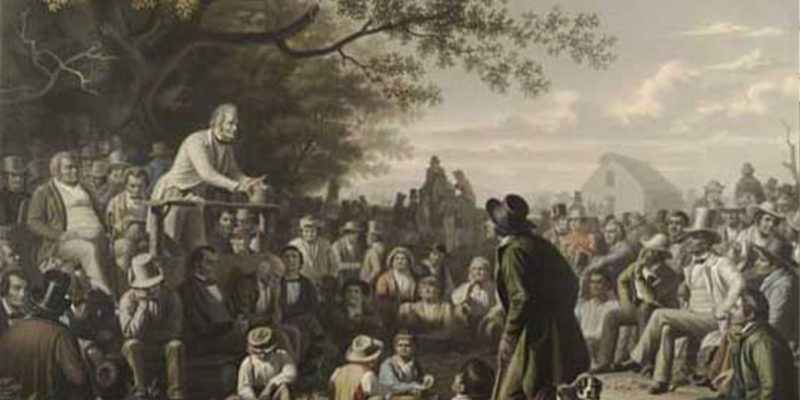The dystopian world portrayed in Atlas Shrugged is an example of the collectivist ideal gone awry. Rand demonstrates the victory of the “men of ability” over the looters and the triumph of self-interest over collective duty.
Few people in the contemporary literary canon arouse as heated a debate as Ayn Rand. On one side are her legions of followers who hold her Objectivist philosophy as the pinnacle of Western individualism. On the other are those who have contempt for her teaching and deride her followers as greedy capitalists; she would decry these people as “socialists”. One of her most influential works, and the primary focus here, is Atlas Shrugged. The plot follows the actions and thoughts of multiple protagonists, including Dagny Taggart and John Galt and their struggle against the “looter” character archetype, portrayed by characters such as James Taggart and Orrin Boyle. In this massive work, Rand speaks out against the socialist behavior she observes, by celebrating what she will call individual self-interest over the collectivist demands for self-sacrifice or, as she calls it, public duty.
As a former resident of the Soviet Union, Rand’s writings emphasized the importance of an economic system, capitalism, which allows all people to achieve their full potential. Atlas Shrugged depicts a dystopian world where socialist theory has been taken to the extreme. In it, Rand puts forth the idea that self-interest is infinitely more important than serving the public good, and it is clear that Rand believes individual ability should be celebrated. Those with ability and wealth do not have an inherent obligation to contribute to the public good but instead have the right to choose altruism. It is also clear that Rand believes collective prosperity is a byproduct of a rational, self-interested population.
Rand describes a dystopian world where men of ability are unable to use their talents to their full extent. As a result of this limitation, the world is controlled by “looters” who, “hide behind the usual…slogan of “public welfare” (Rand 1999, 77). As such, the Randian world portrayed in Atlas Shrugged has three kinds of people, “men of ability” who know that they “can’t consume more than [they] have produced” (Rand 1999, 411), the “ordinary men” who attempt to do the best they can with their limited potential, and the “looters” who derive their worth by leeching off the efforts and talent of the “men of ability”. Using this framework allows Rand to explore the complex relationship between rational self-interest and collective duty within the novel’s plot. Individual ability is celebrated in the actions of Midas Mulligan and the others, while socialistic “looter” behavior is exemplified in the behavior of James Taggart and other politicians. But Rand’s ideal man, displaying the interplay of ability and behavior, is in the character John Galt. He exemplifies what she calls individual self-interest which she defines as an individual’s focus on improving his own position without regard to external forces. In contrast, she defines public duty as the expectation that talented individuals must use their abilities for the sake of someone else; this is the informal motto of the “looters”.
Individual ability is highly undesirable to the “looters” in Atlas Shrugged. This is clearly displayed by the inhabitants of “Galt’s Gulch”, the unofficial name for the hideout established by Midas Mulligan (Rand 1999, 749). This secret getaway serves as a place for the “men of ability” to escape the world governed by the looter code and hide their true abilities. Galt describes this voluntary desertion as a “strike” conducted by the only group of people who have never gone on strike for all of human history – “men of the mind”. The strikers at Galt’s Gulch range from the philosopher Hugh Akston to famous composer Richard Halley. While different circumstances led the strikers to the Gulch, their motivation is the same: they were tired of being forced to apologize for their ability and to sacrifice their own happiness out of public duty. For example, Richard Halley refuses to publish his Fifth Symphony outside the Gulch because the looter audience believes his music is, “their rightful due and his proper purpose” (Rand 1999, 743). Another example is Dr. Hendricks, a talented surgeon who left the outside world and escaped to Galt’s Gulch, “when medicine was placed under state control” (Rand 1999, 744). He goes on strike as he believes his skill and devotion to the art of surgery should not be placed under the control of men unqualified to understand his work. All the inhabitants of Galt’s Gulch represent Rand’s glorification of individual self-interest over the demands of public duty. This is clear in the pledge taken by all the residents of Galt’s Gulch, “I swear by my life and my love of it that I will never live for the sake of another man, nor ask another man to live for mine” (Rand 1999, 756).
John Galt, the ideal individualist, is an inventor who rejected the notion that his inventions should be given to those who did not work for it. As such, Galt throws away his invention, a perpetual motion motor that would have, “made a fortune for [him] and those who had hired [him]” (Rand 1999, 1048). Galt’s rejection of the collectivist mentality makes him Rand’s ideal man particularly when contrasted with Wesley Mouch and the other looters. They claim that Galt’s invention should be given to the masses to benefit everyone without Galt becoming rich in the process. Galt is portrayed as the “ideal man” who alone can bring society back from the socialist dystopia by spreading the idea that no person exists for the benefit of another – all transactions within a society (whether material or immaterial) should be accompanied by a fair reimbursement.
Rand’s argument is further exemplified in Midas Mulligan, the wealthy “man of ability” and an allusion to the Greek myth of King Midas. In the myth, King Midas was punished for his insatiable greed for materialistic wealth (Hamilton 1999, 124). In Atlas Shrugged, Rand reshapes this ancient Greek tale by portraying Midas as the savior of virtuous individualists because of his ability to make money. This same sentiment is echoed by Francisco d’Anconia’s ranting against the common looter axiom “money is the root of all evil”. Francisco argues there is nothing wrong with the love of money; a man who can add value to the world around him is entitled to the wealth he earns. Money is the only acceptable method of transaction between two unique parties. Without it, humanity would be forced to resort to the “muzzle of a gun” as their form of exchange. (Rand 1999, 411). Both characters display Rand’s argument that the selfish pursuit of wealth should be celebrated.
Rand’s exploration also extends into familial relations, displayed by Hank Rearden’s refusal to hire his brother Philip on the basis of their familial tie. Instead, Rearden claims that he would “not give [Philip] the job of a cinder sweeper” (Rand 1999, 208). Hank Rearden does not view giving his brother a job as a moral duty when there are other capable individuals he could hire. Rearden’s unwillingness to engage in nepotism reveals both Rand’s distaste for charity as an obligation as well as her emphasis on earning everything as an individual instead of receiving it from society. Staying true to this principle, Hank Rearden reflects the dominance of individual self-interest (by choosing to hire a competent worker instead of his useless brother) over the idea of familial duty (which would have him hire his brother due to their familial bond). From the example of Hank Rearden, it is clear that Rand views moral obligation to others, whether on the basis of family ties or a shared humanity, as unnecessary. Rather, in a Randian world, the only obligation a person has is to themselves and their talents.
Next, Rand highlights the failure of a socialist, collectivist economy through the story of the Twentieth Century Motor Company. After the death of the first owner, the new owners of the company proposed that everyone in the factory would work “according to his ability, but would be paid according to his need” (Rand 1999, 660-661). This plan was passed by a unanimous vote of all the workers, representing the victory of collectivism. However, the plan’s flaw was quickly revealed when the workers realized there was no way to objectively decide “whose ability and which of whose needs comes first” (Rand 1999, 661-662). This lack of an objective standard to determine allocation of praise (or fault) led to a decrease in factory productivity as well as a new type of competition: men would compete to see who did the worst job possible. This competition was the consequence of demanding overtime work from those with more potential productivity but without paying them accordingly.
By exchanging a traditional sense of competition for a new type, Rand is able to explore the plight of the workers in this collectivist environment. In the words of the ex-worker who recites this tale to Dagny Taggart, “[the workers] learned to hate [their] brothers for the first time in [their] lives” (Rand 1999, 665). This was due to the prevailing belief that others were not pulling their weight in the “family” (the term used to refer to all the workers in the factory). This belief led to a general rejection of marriage and children because these additions would add more pressure on the workers to produce sufficient resources for their non-work families. In this environment of hatred and jealousy, “babies…had become what locusts were to farmers” and the spirit of brotherhood and abundance that the new socialist plan was supposed to beget never occurred (Rand 1999, 666).
Rand explores the interplay between self-interest and collective duty in Atlas Shrugged by examining how these forces shape the psychology of her characters. The panoply of Randian characters is divided into two distinct classes: “Men of ability” and “looters.” The dystopian world portrayed in Atlas Shrugged is an example of the collectivist ideal gone awry; it is a world of “looters” exploiting the “men of ability.” The book concludes with the image of John Galt emerging from Galt’s Gulch and tracing a dollar sign over the desolated American wasteland. Through this image, Rand demonstrates the failure of the “looters” and the victory of the “men of ability” and the triumph of individual self-interest, displaying clearly the core of her political argument.
References
Rand, Ayn. 1999. Atlas Shrugged. Penguin Group.
Hamilton, Edith. 1998. Mythology. First Back Bay Publishers.




 Compass is an online journal that provides a space for the work of talented undergraduates who have original and well-articulated insights on important ideas and issues relating to American democracy understood in the broad contexts of political philosophy, history, literature, economics, and culture.
Compass is an online journal that provides a space for the work of talented undergraduates who have original and well-articulated insights on important ideas and issues relating to American democracy understood in the broad contexts of political philosophy, history, literature, economics, and culture.